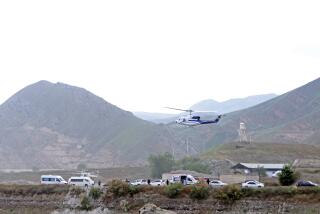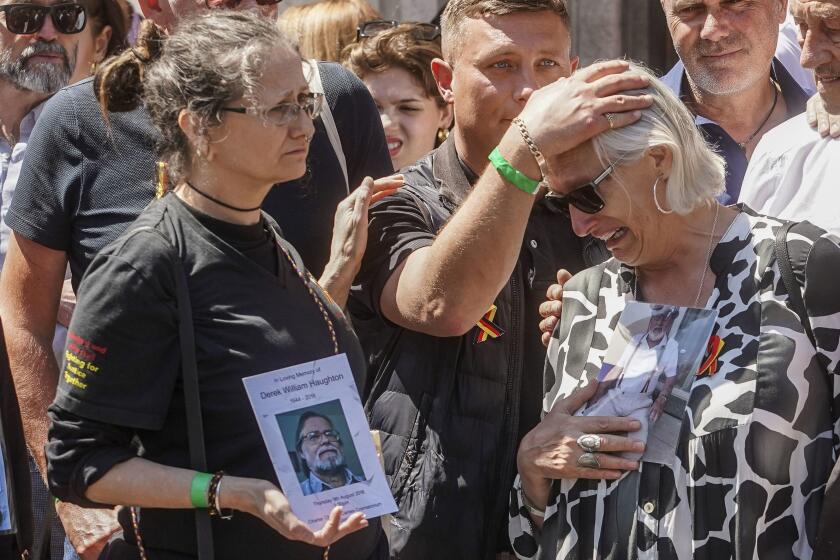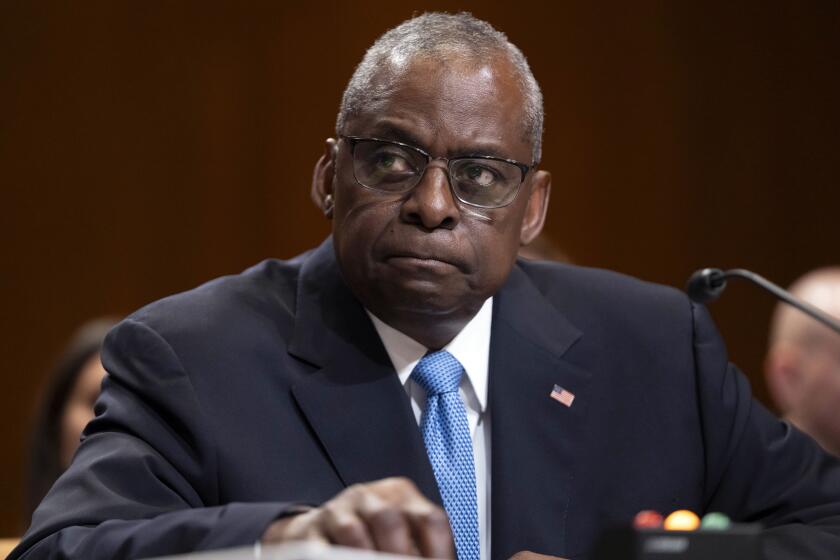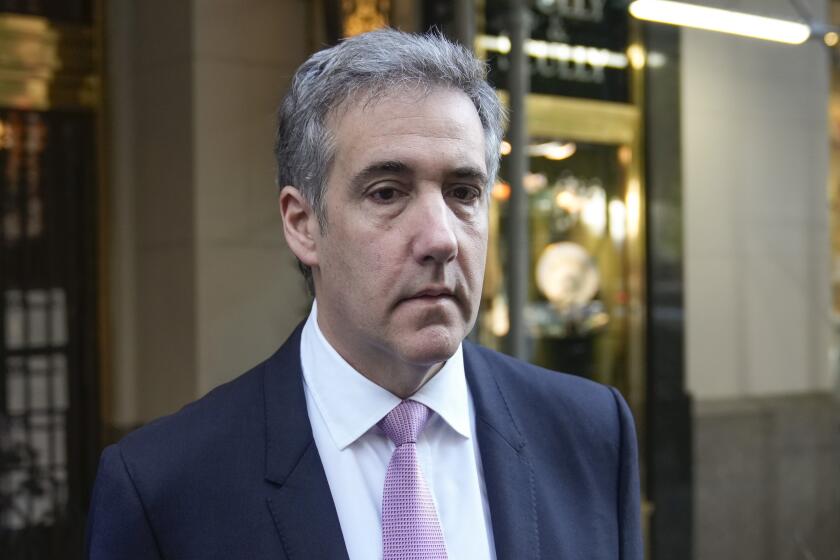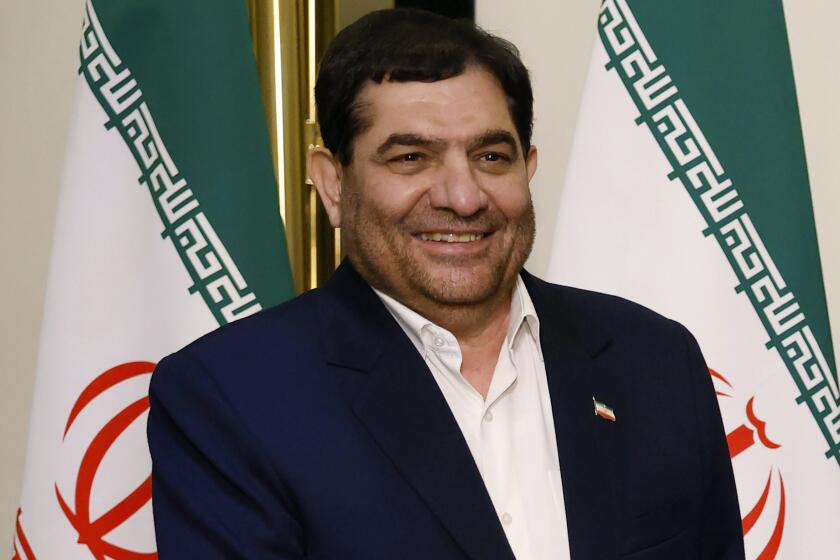Somber Czechoslovaks Mark Breakup of Nation : Separation: The demise of a country with such potential may dim dreams of a unified, peaceful Europe.
Amid the grass and autumn leaves of the capital’s Vysehrad Cemetery, a part of Europe came full circle Saturday.
It was here nearly three years ago, with communism teetering on the brink of collapse throughout Eastern Europe, that thousands of young Czechoslovaks gathered before marching to the center of Prague to demand their nation’s freedom.
That night was in many ways the apex of an extraordinary European autumn--the start of a fairy-tale revolution where no one died, the good guys won, and an enlightened philosopher-poet named Vaclav Havel emerged to lead his people to democracy.
As events Saturday underscored, the Czechoslovaks did not live happily ever after.
On a remarkably similar chilly autumn day, several thousand people gathered near the gates of the same cemetery Saturday to mark a very different event: the dissolution of their country.
The mood was melancholy. More in sadness than in anger, Czechoslovakia has effectively come apart.
“The framework of our nation has disintegrated,” Czech Prime Minister Vaclav Klaus told the somber crowd. “It is now up to us to build an independent Czech state on its ruins.”
Although events here contain none of the horror of the civil war ripping apart the nearby republics of the old Yugoslavia, Czechoslovakia’s demise carries equally disturbing implications for those who dream of a unified, peaceful Europe.
If this state can fall apart despite its rich cultural heritage, a proven industrial potential and long democratic traditions, Europeans ask themselves, then what hope is there for the less stable, struggling nations of southeastern Europe and what used to be the Soviet Union?
“Czechoslovakia could have been an example for Europe and the whole world that different peoples can live together,” said Karel Schwarzenberk, who ran Havel’s presidential office until Havel resigned last summer. “That we can’t (live together) is a sad fact.”
Czechoslovakia’s fate as an independent federal state was all but sealed by the Czech decision not to challenge a Slovak declaration of independence last July.
That declaration was the culmination of decades of low-grade tension within the country driven by the relative Czech prosperity and the Slovaks’ belief that their homeland received second-class treatment within the federation.
Attempts by Slovakia’s nationalist Prime Minister Vladimir Meciar to hedge at least partly on the declaration by advocating a joint army, a common currency and dual citizenship have been rebuffed by Klaus, who insists on a clean break.
In recent weeks, efforts by both men have centered on the terms of what has become Slovakia’s political divorce from the Czech Lands.
Although these “divorce” talks are scheduled to continue today and Monday in the Slovak mountain resort of Javorina, Klaus has repeatedly stated in recent weeks that the 74-year-old federation “no longer exists.”
Officially, Saturday’s rally was called to celebrate the “restoration” of the Czech state--a logical consequence of the breakup.
With the date of the federation’s formal breakup set for Jan. 1, the rally was an attempt to instill a degree of Czech identity and affirm Czech independence. In fact, it seemed more a public mourning of the death of Czechoslovakia.
Those who came seemed more interested in reassurance than celebration, and speakers tried to match the mood.
“All that’s painful, that surprises or hurts us can be a path to something new--new creativity, new responsibilities,” Havel consoled the crowd. “This moment is a great challenge. Success depends on us.”
Added Klaus, “We are not building this state against anyone, we are building it only for ourselves. We are building it so we can be part of Europe. What we need above all now is self-confidence and courage.”
The words of both leaders were met by restrained applause. There was no cheering and no flag-waving. Indeed, there were no flags.
Far from harboring sentiments like those that inspired jingoistic celebrations when Slovenia and Croatia became independent from the old Yugoslavia, large numbers of Slovaks as well as Czechs are said to have serious doubts about the wisdom of the split.
The re-emergence of Slovakian nationalism came as part of a broader political assertiveness by ethnic and national groups throughout the former Soviet Bloc after the collapse of communism.
Emotions were fueled further as Slovaks watched the overwhelming majority of foreign investment during the last two years flow into the Czech Lands.
Tough post-revolution economic policies designed by Klaus also hit Slovakia’s obsolete, Soviet-designed heavy industry disproportionately hard.
After an initial attempt last summer to meet Slovak demands for independence within a loose confederation with the Czech Lands, Klaus has since insisted on a clean break.
“On both sides, people aren’t sure this is the right way,” said Martin Palous, a leader of the 1989 revolution who later became deputy foreign minister. “The biggest problem for professional politicians is to convince people there are no alternatives.”
Saturday’s rally showed that for many, the split has already occurred. Before leaving, those present held candles high and sang Czechoslovakia’s national anthem--a slow, soulful Czech melody that is followed by strains of brisk Slovak music. The Slovak portion was missing.
More to Read
Start your day right
Sign up for Essential California for news, features and recommendations from the L.A. Times and beyond in your inbox six days a week.
You may occasionally receive promotional content from the Los Angeles Times.

